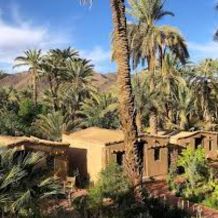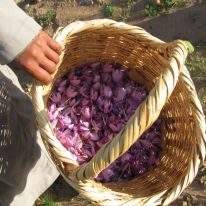
Netflix Expands Access to Moroccan Film “Much Loved”
“Much Loved”, a controversial Moroccan film available in several countries worldwide recently became available for streaming on Netflix in the USA and other European countries. The film, however is still banned in Morocco according to the Ministry of Communication. The Moroccan authorities have continued with resolve that “Much Loved,” has serious contempt for culture’s moral values and Moroccan women and is a flagrant breach of respect for the Kingdom.
While “Much Love” appeared on Netflix in the USA, the UK, Canada, and India in September 2017, the Moroccan film remained restricted in many other countries. Earlier this year “Much Love” received approval for expanded access in Argentina, Spain, Czech Republic, Singapore, Malaysia and for the first time on Netflix France.
The movie is streaming in the Moroccan dialect, Darija with subtitles in local languages, based on the viewer’s location.
“Much Loved,” was released in 2015 by Moroccan filmmaker Nabil Ayouch, tells the story of four female prostitution and the struggle of survival that is endured along with the danger and stigma that comes from their profession. Risqué scenes of prostitutes in Marrakech partying, speaking raunchy Arabic and servicing wealthy Saudi clients are a part of the films controversy.
Since the ban, Moroccans have watched the movie through illegal streaming services and have been divided on their thoughts relating to its dissension within society.

Conservative Muslims view “Much Loved” as scandalous.
Conservative Muslims view “Much Loved” as scandalous. The communications minister, Mustapha Khalfi, a member of the Justice and Development Party, echoed the outrage expressed by many when he said, “The film undermines the moral values and dignity of Moroccan women as well as all the image of Morocco.”
Mr. Ayouch, 46, said in a telephone interview that he “was expecting a debate, a polemic, some sort of confrontation because it is a sensitive topic,” then added: “But I am not feeling good about this controversy. I make films because I want Moroccans to see them.”
Many progressive voices have defended the movie under the right of freedom of speech. They argued that it is necessary to shed light on the subject of prostitution in Morocco, with shock value intended to encourage change.
Mr. Ayouch said “The state needs to have faith in the Moroccan people and let them form their own judgment.” adding that every Moroccan knows that prostitution, though illegal, is rampant in Marrakech. “It was important for me to let people hear the voices of these women who live in complete despair.”
After excerpts were leaked online, an actor who played a Saudi client was wounded in a knife attack by a stranger who the actor said accused him of ruining Morocco’s image. Death threats were also made against the film’s actresses, including Loubna Abidar.
Ms. Abidar in her appearance on a local radio show jousted with a critical host who warned her that he would go after her morally if she appeared naked in the film. (She does.) Yet she told the host that she was merely playing a role that Moroccans knew well.
“If I would have played the role of a killer, would that have made me a killer?” Ms. Abidar added. “There are thousands of prostitutes in Morocco. You need to watch the movie to understand that there is much more to it.” Loubna Abidar was a victim of physical aggression from assailants who called her “a prostitute.” The incident led the actress to depart Morocco and live in France in November 2015.
Since then, several media in Europe invited Abidar to talk shows and she assumed the role of an advocate for women’s emancipation. She released an autobiography in French titled “La Dangereuse” (The Dangerous) in 2018 narrating how she grew up in “a patriarchal and misogynistic society.” Some analysts view that the reaction to the film reflects a sensitivity to prostitution rather than the rise of Islamic conservatism in the country.
Abdessamad Dialmy, a researcher in sexual identity at Mohammed V University in Rabat, said: “Prostitution exists but nobody must talk about it. The state lets prostitution exist. This movie shows it, and that is what bothers everyone.” “Sex labor is an informal response to unemployment,” Mr. Dialmy said. “In certain regions, it allows the economy to function. It gives work to taxis, hotels and so on. It helps the economy expand.”
Meriam Cheikh, a doctoral candidate in anthropology at the University of Brussels who is writing her thesis on sex labor in Morocco, said Mr. Ayouch’s film accurately portrayed the situation she studied while living for two years among sex workers in Tangiers. “They are the first victims of unemployment,” she said. “Many of them failed their studies, cannot find jobs and engaged in paid sexual relationships while hoping to find a husband and get out of the business.” “Sometimes there are mass arrests, like in 2009, during election times when the state wants to show that it is doing its job,” Ms. Cheikh added.
In fact, the recent addition of the movie to the Netflix catalog in some countries builds on the Moroccan film’s relative international success, despite its domestic ban.





